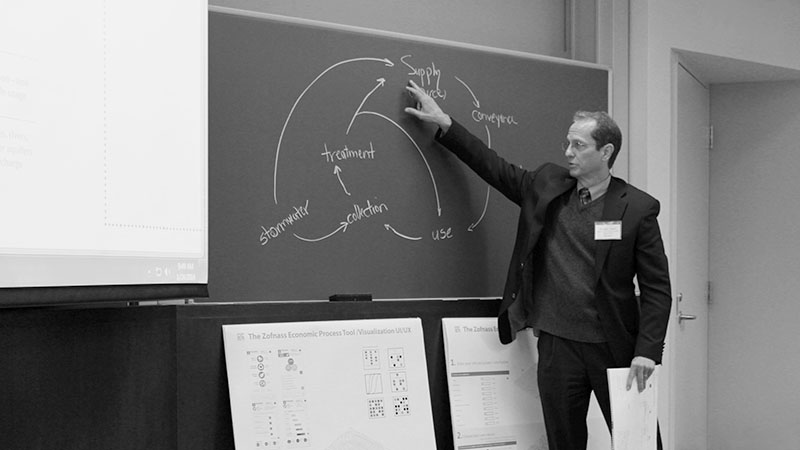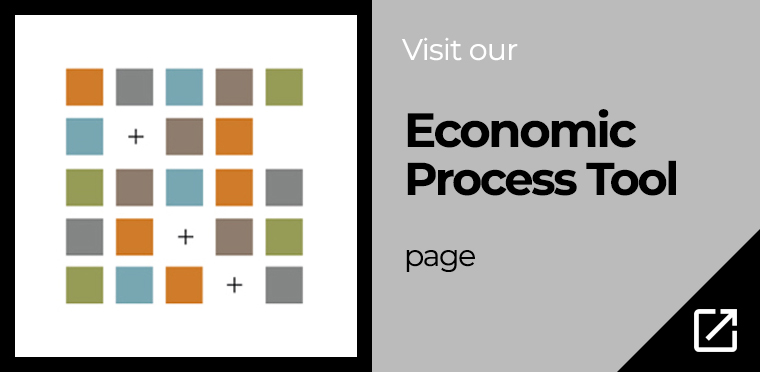What is it?
The Zofnass Economic Process Tool is a platform that offers a fast and easy way to achieve preliminary quantification and monetization of sustainability externalities in infrastructure projects based on the Envision™ rating system. The tool uses user input values to achieve this quantification in a clear and transparent manner. The tool uses a comprehensive data set to inform users on the range of values that might fit their proposed project designs. The quantification of sustainability externalities becomes an integral part of the design process and promotes the implementation of sustainable strategies. This approach also negotiates existing gaps in the understanding of sustainability and economics, allowing more stakeholders to become part of the design solution.

Who might want to use it?
Potential users of the tool are sustainability design decision makers: designers, planners, sustainability professionals and activists, public officials, educators and any advocate for sustainable designs. When using the tool, one can strengthen the argument for sustainable practice while adding an economic justification to the design, based on the Envision™ rating system credits.

The relationship to Envision™
The Zofnass Economic Companion is based on the Envision™ rating system. The externalities listed in the tool relate to each one of the envision credit and illustrate a direct cost benefit relationship for applying sustainable strategies.
Further resources
Research team
Program Director
Prof. Spiro Pollalis, pollalis@gsd.harvard.edu
Research Director
Dr. Andreas Georgoulias
Researchers
Feng Shen, MAUD 2015 • Maria Arroyo, MLA 2015 • Mariana Barrera, MAUD 2014 • Cody Birkey, MDes 2013 • Sourav Biswas, MLA 2015 • Farah Eriqat, MUP 2014 • Apoorv Goyal, MDes 2014 • Arion Kochani, MArch 2016 • Sivan Naaman • Ian Meyer, FAS 2017 • Tiany Yang, MDES 2014 • Julie Zelemayer, MDes 2013
Platform development
Jose Luis Garcia del Castillo, Computational Designer, MDes 2013, DDES 2017 • Theodore Michailidis, software engineer • Konstantinos Bamidis, software engineer • Chris Aslanoglou, software engineer


